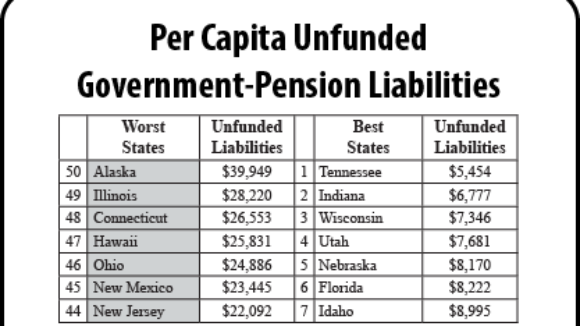As Rick Callahan of the Associated Press recently reported (see the link below), Fort Wayne, the Hoosier State’s second-largest city, is close to approving legislation that would revoke many municipal union bosses’ monopoly-bargaining privileges.
Under Indiana law, cities, towns and counties are permitted, but not required, to allow the agents of a single government union to negotiate pay, benefits, and work rules for all the front-line employees in a public workplace, including union members and nonmembers alike.
Virtually whenever Big Labor wields monopoly-bargaining power in the public sector, it uses it in ways harmful to taxpayers and other people who rely on vital government services. Many public servants also end up getting hurt economically, and all who are subjected to so-called “exclusive” union representation lose their independence.
In early 2011, Wisconsin Gov. Scott Walker (R) and his legislative allies demonstrated that state laws authorizing monopoly-bargaining and forced union dues in the government sector can be rolled back. Over furious Big Labor opposition, but with strong Right to Work support, legislators sent to Walker’s desk for his signature a wide-ranging budgetary and labor-policy reform known as Act 10. Key provisions in Act 10 restored the Right to Work of most public employees and greatly narrowed the scope of most government union bosses’ monopoly-bargaining privileges.
Since the state of Wisconsin successfully fended off litigation to block Act 10 from taking effect nearly three years ago, taxpayers have saved billions of dollars, but the ability of the state and its localities to recruit and reward good public employees has actually improved. School districts, for example, no longer have to waste millions and millions of dollars buying overpriced health insurance for teachers from a subsidiary of the Wisconsin Education Association Council teacher union, because they no longer need teacher union bosses’ acquiescence to change their insurance providers. As a consequence, teachers can get better health insurance at a lower cost, and the savings can be used for better purposes such as rewarding good teachers or reducing taxes.
Fort Wayne GOP Councilman John Crawford and five other members of the City Council voted last month to enact their own local “Act 10” by abolishing union monopoly bargaining in most municipal government agencies, with the unfortunate exceptions of public-safety departments.
According to Callahan, Democratic Mayor Tom Henry is expected to veto Crawford’s labor-policy reform at the soonest opportunity, but as of now Crawford has enough votes to override a veto. A second City Council ballot on Crawford’s legislation is expected as soon as today. Right to Work supporters in Indiana and nationwide will be watching closely to see what happens.
Indiana City Moves to End Collective Bargaining


